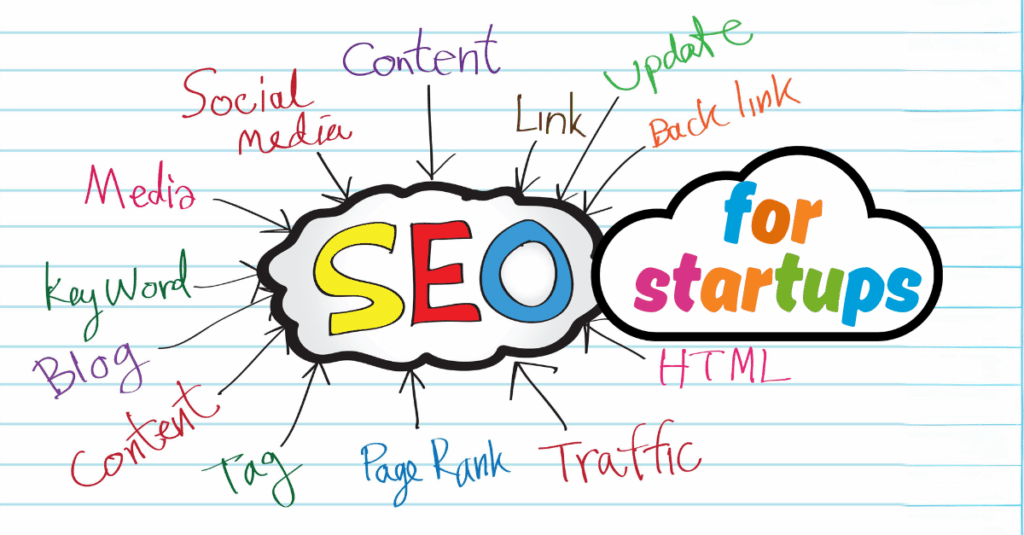SEO Tips to help founders improve their startups ranking

Got a great product but no website traffic? That’s where SEO for startups comes in. Search engine optimization isn’t just for big brands—it’s a crucial tool for early-stage founders to build online visibility, attract organic traffic, and convert visitors into customers.
If your startup isn’t ranking, you’re missing out on free leads. Let’s fix that.
Why SEO Matters for Startups
Unlike paid ads, SEO drives sustainable, long-term traffic. It helps users find you exactly when they’re looking for what you offer.
For bootstrapped or early-stage teams, SEO is a growth lever that doesn’t require big budgets—just smart strategy, effort, and patience.
Need funding-ready traffic? Startups backed by FoundersMax are guided through foundational SEO to make sure their websites are investment-grade from day one.
Start With the Right Keywords
Keywords are the phrases your customers search on Google. Start with low-competition, high-intent keywords relevant to your startup’s offering.
How to find them:
- Use tools like Ubersuggest, Ahrefs, or Google Keyword Planner
- Look at what your competitors rank for
- Focus on long-tail keywords (e.g., “best project management tool for freelancers”)
Create a list of 10–20 primary and supporting keywords to guide your content and site structure.
Optimize Your Website Structure
Google and users both love clean site architecture. Structure your startup website to be simple, fast, and crawlable.
Best practices:
- Use a clear menu with logical categories
- Add internal links between relevant pages
- Create an XML sitemap and submit to Google Search Console
- Make sure every page is mobile-friendly and loads quickly
A slow, confusing site = high bounce rates. Fixing structure is foundational to startup website SEO tips.
Nail the On-Page SEO Essentials
Every page should have clear, targeted elements that speak to both users and search engines.
Checklist for on-page SEO:
- Title Tag: Include your main keyword
- Meta Description: Clear, compelling, under 160 characters
- URL Structure: Clean, readable (e.g., /pricing or /features)
- H1 Tags: Every page should have one focused H1
- Image Alt Text: Helps Google “read” your images
- Internal Linking: Link to other relevant pages or blog posts
Simple tweaks = major visibility gains.
Create Content That Solves Real Problems
Content is the engine of SEO. Publish high-quality blog posts, guides, and FAQs that answer your audience’s burning questions.
Content ideas for startups:
- How-to guides
- Industry trends
- Founder stories
- Product comparisons
- SEO-focused landing pages for each use case
Stick to one topic per page. Target one primary keyword and support it naturally with related phrases.
Build Backlinks the Smart Way
Google sees backlinks as votes of trust. The more quality links point to your site, the higher you’ll rank.
How to earn backlinks:
- Guest post on industry blogs
- Submit to startup directories
- Get featured in podcasts or interviews
- Use HARO (Help a Reporter Out) to contribute quotes
- Create original research or infographics others want to reference
Avoid shady link farms—Google will penalize you.
Track Performance and Improve Over Time
SEO isn’t set-and-forget. Track your site performance and update regularly.
Tools to use:
- Google Analytics – traffic behavior
- Google Search Console – keyword rankings and indexing issues
- Ahrefs or SEMrush – backlink tracking and keyword performance
- Hotjar – user behavior insights
Measure what matters: traffic, rankings, click-through rates, and conversions.
SEO is the Startup Growth Engine
SEO for startups isn’t magic—it’s method. With the right strategy, even small teams can rank high, generate leads, and compete with bigger players.
Start lean, stay consistent, and always optimize. And if you’re launching or scaling and want expert help, FoundersMax supports early-stage startups in building SEO-ready websites that actually convert.
FAQs
1. How long does SEO take to work for startups?
Usually 3–6 months for early traction, depending on competition and content consistency.
2. Should startups do SEO or paid ads first?
SEO is more cost-effective long-term, but both can work in parallel.
3. What is the easiest SEO win for new startups?
Optimize your homepage and write one keyword-targeted blog post per week.
4. Do all startups need a blog?
If you want organic traffic—yes. Blogs help rank for long-tail keywords and build authority.
5. Where can I get help with SEO?


